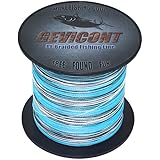An estimated 15% of all common cold symptoms include a persistent cough, and when you’re far from civilization, a simple cough can feel like a major inconvenience. While modern medicine offers many solutions, those engaged in camping, survival, and outdoor adventures often find themselves exploring unconventional remedies. The video above hints at one such intriguing, albeit unusual, suggestion: the use of soy sauce cough medicine. This concept, while not a mainstream medical recommendation, sparks curiosity about emergency preparedness and natural relief when traditional options are out of reach. Let’s delve into this unique approach and explore other effective natural remedies that can provide comfort in the great outdoors.
1. The Intriguing Idea of Soy Sauce for Coughs
The notion of using soy sauce as a cough medicine might sound bizarre to many, but it’s a concept that occasionally surfaces in discussions about home remedies, especially in circles focused on survival and bushcraft. While the video above offers only sounds and reactions, it piques interest in how such a common condiment could possibly offer relief. Historically, various cultures have experimented with everyday items for medicinal purposes, often with varying degrees of success. This particular application seems to lean more towards anecdotal evidence and emergency improvisation rather than established scientific backing, making it a fascinating topic for discussion among outdoor enthusiasts.
The immediate reaction in the video—a mix of “Mmm,” “Ooh,” and “Ahh”—suggests an intense, perhaps even surprising, experience with the remedy. This aligns with the strong, distinctive taste of soy sauce itself, which is far from what one would expect from a typical cough syrup. For those exploring alternative or last-resort solutions in remote settings, understanding the potential rationale, however speculative, behind using something like soy sauce cough medicine becomes a part of their larger knowledge base for self-reliance. It’s a reminder that ingenuity often comes to the forefront when resources are scarce and comfort is needed most.
2. Why Might Soy Sauce Offer Cough Relief?
While there isn’t extensive scientific research supporting soy sauce as a definitive cough cure, we can speculate on a few mechanisms that might offer some perceived relief. Understanding these potential factors can help explain why some individuals might find it beneficial, even if temporarily. It’s important to approach this as an emergency or unconventional remedy, rather than a proven medical treatment for persistent respiratory issues. The unique properties of soy sauce could play a small role in soothing an irritated throat, particularly in situations where other options are unavailable.
2.1 The Salty Factor
One primary component of soy sauce is its high salt content. Saltwater gargles are a widely recognized home remedy for sore throats and coughs, as salt can help draw out fluid from inflamed tissues, reducing swelling and irritation. The hypertonic solution created by salt can also kill certain bacteria and loosen mucus, making it easier to expel. Therefore, the salt in soy sauce might mimic some of these effects, providing a temporary soothing sensation for an irritated throat. This effect, however, is generally short-lived and does not address the underlying cause of the cough.
2.2 Hydration and Throat Coating
Any liquid, especially warm liquid, can provide temporary relief from a cough by moistening a dry, irritated throat and helping to thin mucus. Soy sauce, being a liquid, can contribute to this basic hydration. Additionally, its viscous texture might create a temporary coating on the throat lining, offering a brief barrier against irritants. This physical barrier can help to calm the cough reflex by protecting the sensitive nerve endings in the throat. While not as effective as honey or other dedicated cough syrups, it still provides some mechanical comfort.
2.3 Placebo Effect and Mindset
Never underestimate the power of the placebo effect, especially in survival or outdoor scenarios where morale and belief are crucial. If an individual believes that soy sauce cough medicine will work, their body might respond positively, leading to a perceived reduction in symptoms. In stressful situations like camping or emergency survival, finding any form of relief, even if psychological, can be incredibly empowering. The strong taste and unexpected nature of the remedy might also contribute to a sense of “doing something” effective, which can be a powerful mental tool against discomfort.
3. How to Prepare and Use Soy Sauce for Coughs (If You Dare!)
If you find yourself in a bind with a persistent cough and limited resources, and are considering the soy sauce cough medicine approach, here’s a basic, unverified method. Remember, this is purely an anecdotal suggestion and should not replace proper medical advice or proven remedies. Always prioritize your health and safety, especially when dealing with respiratory symptoms in remote areas. The goal here is merely to outline the method often discussed among those interested in extreme self-reliance.
The most commonly suggested method involves taking a very small amount of soy sauce, perhaps a teaspoon, and either sipping it directly or mixing it with warm water. Some suggest adding a bit of honey, if available, to create a more palatable and potentially more soothing concoction. Warmth generally helps soothe a sore throat, so a warm soy sauce and water mixture might feel more comforting than cold. Repeat this small dose periodically as needed, but be mindful of the high sodium content, which could lead to dehydration if consumed in large quantities without sufficient water intake. Always ensure you have plenty of fresh drinking water available.
4. Beyond Soy Sauce: Essential Natural Cough Remedies for the Outdoors
While the allure of unconventional remedies like soy sauce cough medicine is strong for outdoor enthusiasts, it’s wise to also be familiar with more commonly accepted and effective natural cough remedies. These are often easier to implement and generally safer, making them excellent additions to any camping or survival first-aid kit. Having a range of options can make a significant difference in managing discomfort when you’re away from conventional pharmacies and medical facilities. Prioritizing these proven methods is always a sound strategy for outdoor preparedness.
4.1 The Comfort of Warm Liquids
One of the most effective and simplest methods for soothing a cough is to drink warm liquids. Hot water, herbal teas, or even a warm broth can help to thin mucus, reduce throat irritation, and provide general comfort. The steam from warm drinks also helps to open up nasal passages and alleviate congestion, making breathing easier. Carrying a small, lightweight kettle or pot and some tea bags (like ginger or peppermint) is a wise addition to any outdoor kit, ensuring you always have access to this basic but powerful remedy.
4.2 Honey’s Soothing Power
Honey is a classic and highly effective natural cough remedy, particularly for children and adults. Its thick, viscous texture coats the throat, reducing irritation and providing a soothing sensation. Studies have shown honey can be as effective as some over-the-counter cough syrups. A spoonful of honey straight, or mixed into warm water with lemon, can provide significant relief. It’s a fantastic item to pack for camping trips, not only for its remedial properties but also as a versatile food source.
4.3 Ginger’s Zesty Aid
Ginger is renowned for its anti-inflammatory and soothing properties, making it an excellent natural remedy for coughs and sore throats. Chewing on a small piece of fresh ginger, or making ginger tea by steeping sliced ginger in hot water, can help calm irritation and reduce inflammation in the respiratory passages. Its warming effect also provides comfort. Dried ginger can be a lightweight addition to a survival kit, offering a potent natural aid when needed most.
4.4 Hydration is Key
Regardless of the specific remedy chosen, staying well-hydrated is paramount when dealing with a cough or any respiratory illness. Drinking plenty of water helps to thin mucus, making it easier to cough up, and keeps the throat moist, preventing further irritation. Dehydration can worsen coughs and prolong recovery, which is particularly dangerous in outdoor or survival situations. Always carry adequate water and consider electrolyte solutions to maintain proper hydration levels, especially during strenuous activities or illness.
5. When to Seek Professional Help for Persistent Coughs
While exploring natural and unconventional remedies like soy sauce cough medicine can be interesting for minor ailments, it’s crucial to understand their limitations and when to seek professional medical attention. A persistent cough, especially when accompanied by other symptoms, can indicate a more serious underlying condition that requires proper diagnosis and treatment. Being prepared for emergencies means knowing when to stop self-treating and when to escalate care, particularly in remote outdoor environments where access to medical help might be delayed.
If a cough lasts for more than a few days, worsens significantly, or is accompanied by fever, chest pain, shortness of breath, wheezing, or blood in the phlegm, it’s time to seek immediate medical advice. These symptoms could point to infections like bronchitis, pneumonia, or other serious respiratory issues that natural remedies cannot resolve. Always carry a well-stocked first-aid kit that includes over-the-counter cough suppressants and pain relievers, and ensure you have a plan for emergency evacuation if someone’s condition deteriorates rapidly while in the wilderness.











